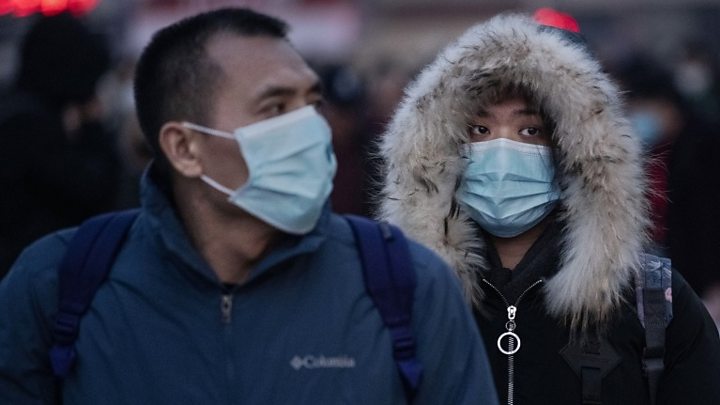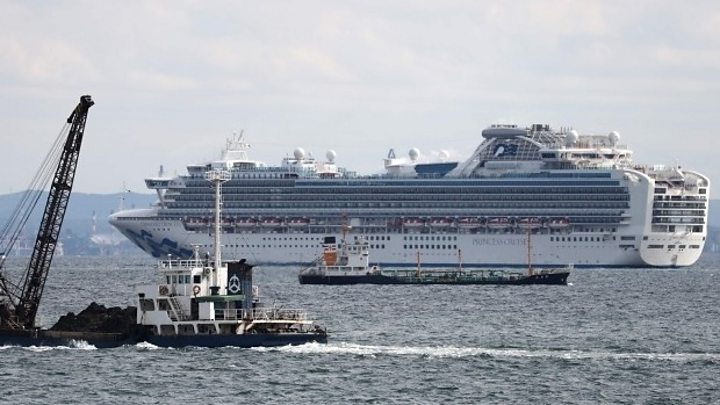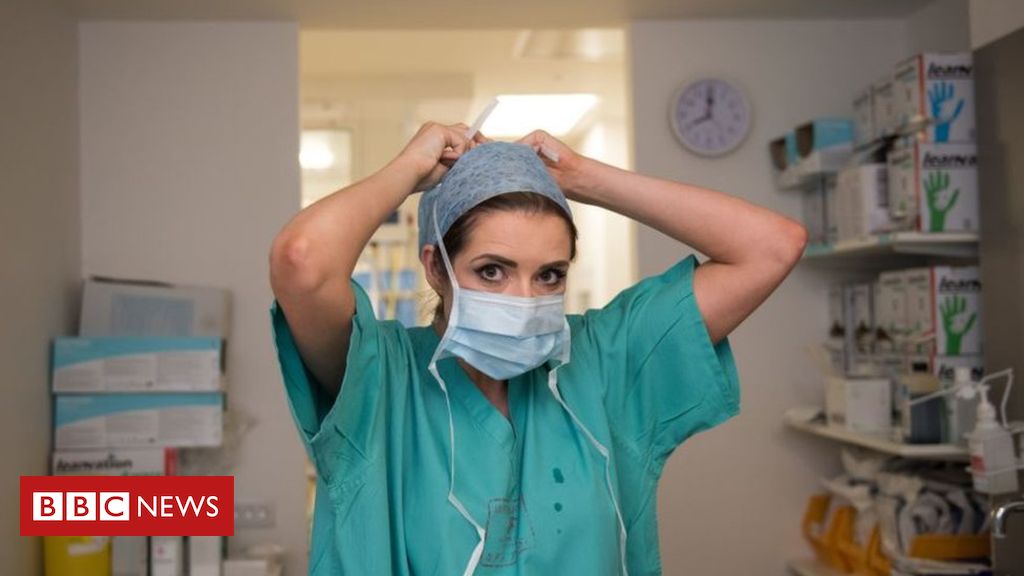NHS orders ‘coronavirus pods’ in England hospitals
 Image copyright Getty Images
Image copyright Getty Images Every hospital in England is being asked to create “priority assessment pods” for patients with suspected coronavirus, the NHS has said.
Patients who are concerned they may have the virus are still advised to isolate themselves and call 111.
But the contingency measure is intended to prevent any patients who do arrive at hospital from mixing with vulnerable patients.
The secure areas are expected to be introduced by Friday.
In China, 490 people have died and 24,300 people have been confirmed to have contracted the new virus. It has now spread to 25 nations, with two cases in the UK.
The new measure means that A&E departments will be able to direct people who think they have symptoms of the coronavirus to a pod away from other patients, where they can call specialist NHS 111 teams on a dedicated phone.
An NHS spokeswoman said: “Anyone with a cough, fever, or shortness of breath who attends hospital and has recently returned from China will be advised to follow signs to NHS 111 pods and call for advice, so they stay isolated from other patients and avoid causing unnecessary pressure in A&E.”
BBC health correspondent Nick Triggle said the NHS is aware people may not always follow the advice to self-isolate if the virus starts to spread across England.
The pods are meant to protect others using the hospitals – who may have vulnerable immune systems.
“The problem hospitals face is where to create these pods. There is not lots of spare space on many sites to house coronavirus patients and building separate facilities may not be practical,” he said.
A Scottish government spokesperson said it had detailed arrangements in place to carry out coronavirus test sampling, but these were being kept under review and additional measures would be introduced if necessary.

Since the virus has spread overseas, 25 nations have confirmed a total of 191 cases, although there has been only one death so far, in the Philippines.
The World Health Organization (WHO) has declared the outbreak a global health emergency.
On Tuesday, the Foreign Office advised all UK citizens to leave China if possible, to minimise the risk of exposure to the virus.
Two flights from Wuhan, where the virus is thought to have originated, have brought 94 Britons and their family members back to the UK so far.
They are now in quarantine at Arrowe Park Hospital in Wirral for 14 days – the incubation period of the virus – to ensure they are not infected.
A further eight UK nationals and six of their family members left on a flight to New Zealand on Tuesday, and the Foreign Office is chartering a final repatriation flight on Sunday, to allow remaining Britons to leave Hubei province in China.
The Foreign Office said there were between 150 and 200 UK citizens and their dependents remaining in this part of China, and about 100 of them have asked for help to leave.

Another British man, David Abel, is in quarantine on a cruise ship docked in the Japanese port of Yokohama after a passenger from Hong Kong fell ill with the virus.
At least 10 people on board the ship, the Diamond Princess, have since tested positive for the virus.
Two people in the UK – a student at the University of York and one of their relatives – have been confirmed to have coronavirus and are being treated at the specialist infectious diseases unit at Newcastle Royal Victoria Infirmary.
The Department of Health and Social Care said 466 people have tested negative for the virus.
The coronavirus causes severe acute respiratory infection and symptoms usually start with a fever, followed by a dry cough.
Most people infected are likely to fully recover – just as they would from flu.
Learn more about the new virus
 Image copyright Getty
Image copyright Getty - How worried should we be?
- The city now in lockdown
- Can wearing masks stop the spread of viruses?
- Coronavirus: A visual guide to the outbreak
Read more: https://www.bbc.co.uk/news/uk-51392607
